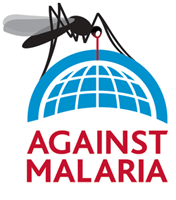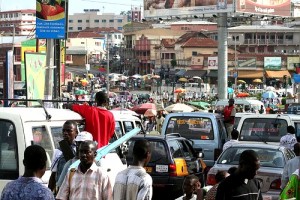Prepare your visit to Ghana!
The Ghanaian currency is the Ghana Cedi. Unfortunately you can’t change your currency into Ghana Cedi’s before arrival in Ghana.
Try one or more of the following ways to obtain Cedi’s whilst in Ghana:
• ATM. Before coming to Ghana, contact your bank or credit card company to enquire if and where your ATM card is accepted in Ghana. Most banks do.
Ghana Commercial Bank (GCB) accepts ATM cards with Cirrus or Maestro logo.
In case you wish to use ATM machines from other banks in Ghana (other than Stanbic Bank or GCB), a Visa card is required. In Ghana, your Visa card is accepted by ATMs from Barclays bank, Eco bank, Standard Chartered bank, and other smaller banks.
• Bring along your foreign currency in cash (Euros, USD, GBP). You can change money at exchange offices (‘Forex Bureaus’) and banks. Banks normally open from 8.30 to 4pm and on Saturdays from 9 to 2pm.
• Credit card. You can use your credit card at some hotels and restaurants (Visa or Mastercard). However, to prevent unauthorized use of your card. Be cautious when using your card and keep an eye on it at all times.
Applications for a Ghanaian visa should be made to the nearest Ghana Consulate or Embassy.
• For online visa application (UK nationals only) visit www.ghanahighcommissionuk.com
• For the Ghanaian Embassy in the USA visit www.ghanaembassy.org
• For an extension of your visa (after 2 months) visit www.ghanaimmigration.org
Ghana is a safe country. However in and around the bigger cities (such as Accra, Kumasi & Tamale) there are minor incidents of crime and theft. Sometimes theft from motorbikes occurs in the evening and night. Therefore be a bit cautious in busy areas or popular places for foreigners, such as ‘Osu’, in and around ‘Kwame Nkrumah circle’, the old city centre, ‘Labadi beach’ and especially during busy street events. You may wish to avoid using ATM’s at night, carrying handbags or using expensive mobile phones at night.
• For official travel information by US authorities visit www.travel.state.gov
• For official travel information by UK authorities visit www.fco.gov. uk
The only immunization required by Ghanaian authorities is Yellow Fever. All others are optional. You need to discuss with your doctor or travel clinic which ones are advisable in your situation.
You may wish to bring along some first aid items such as Imodium to stop diarrhoea, Paracetamol, O.R.S. (Oral Rehydration Salt), mosquito repellent, sun cream, plasters and sterile bandages.


It is advised to use mosquito nets at night and to buy them prior to your arrival in Ghana. Note that most hotels do not provide mosquito nets. It is also advised to bring along mosquito repellent (containing ‘DEET’: indicated on the product), as well as wearing long sleeves and trousers in the evening.
If you are not taking preventive malaria tablets, you can buy inexpensive short term malarial treatments over the counter in Ghana (such as Coartem, Artesunate and smaller brands). If you buy them in advance, your treatment is at hand whenever you begin to display malarial symptoms.
Symptoms include fever, chills, aches and pains, lack of appetite, lethargy… For more information about malaria please visit www.traveldoctor.co.uk/malaria.
Good clinics frequently used by expats and foreigners are: Lister Hospital (www.listerhospital.com.gh) at Spintex Road in Accra (Tel. 00233 (0)302812 325 & 00233 (0)302812326) & Nyaho Medical Center at Airport Residential, Accra (Tel. 00233 (0)302775291 / 00233 (0)302775341).
For the USD-Cedi rate click here.
Photographing government buildings as well as uniformed persons is prohibited. Furthermore, sellers at Accra’s main market, Makola market, do often not appreciate being photographed.
Tap water in Ghana is non potable. It is advised to buy bottles of mineral water. ‘Voltic’ and ‘Dasaani’ are two of the many brands available in Ghana. A cheap alternative are sachets of ‘pure water’, which are purified water being sold in small sealed plastic sachets. You can find them almost anywhere in Ghana for 10 Cedi cent (‘Pesewa’). Street sellers sell pure water at busy crossings and traffic lights.
Please note that Ghana is struggling with the amount of single use plastics. You may wish not to use sealed water and plastic bottles for that matter. For recycling of plastics into cool reusable products have a look at trashy bags africa
Ghana experiences frequent power cuts and fluctuations. It is therefore advised to bring along a flashlight and/or candles.
Note that in remote areas and villages, English is not as proficient as elsewhere in Ghana.


Be aware that cars in general do not give way to pedestrians; so if you need to cross a busy street, at least make a gesture to attract the attention of drivers. When you ride a bicycle, be aware of taxis and small buses, as they can suddenly stop or park to pick passengers.




